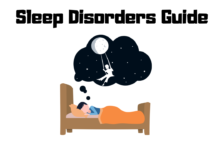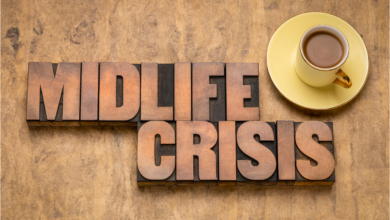What Is Having OCD Really Like?
Characterized by obsessions, compulsions, and intrusive thoughts, obsessive-compulsive disorder or OCD is a mental health condition that impacts roughly 1 out of every 40 adults and 1 out of every 100 children. Stereotypes and poor portrayals of obsessive-compulsive disorder can lead to incorrect ideas about what it really means to have OCD. So, you might wonder, what is having OCD really like?
The Reality Of OCD
What many people don’t realize about obsessive-compulsive disorder is that it can take many different forms. This means that it impacts every person in diverse ways, and in that sense, living with OCD is different for everyone who has it.
To be diagnosed with OCD, symptoms of OCD must impact your daily functioning, cause significant distress, or take up an hour or more of your day. So, while someone may relate to a behavior that someone with OCD experiences as a compulsion (common compulsions include but are not limited to handwashing, checking to make sure that doors are locked, repeating words or phrases, ordering items, making sure that objects are symmetrical, and so on), the difference between someone with OCD and someone without OCD is that for someone with OCD, obsessions and compulsions impact their life negatively. For someone with OCD, there will be significant distress, a pervasive need to engage in compulsions, whether they are mental compulsions or visible compulsions, and often, intrusive thoughts that are highly distressing.
Generally speaking, you cannot “see” OCD, and it’s crucial to break stereotypes surrounding it. If someone in your life opens up about their OCD, support them by listening, trusting their experiences, and putting in the effort to learn more about the condition.
Common Manifestations Of OCD
Although stereotypes would have you believe that the obsessions and compulsions seen in those with obsessive-compulsive disorder always surround either contamination and cleaning or symmetry and ordering, this is not the case. Both of these are common manifestations of obsessive-compulsive disorder, but they aren’t the only way that OCD can manifest. Other common manifestations of obsessive-compulsive disorder may include harm OCD with checking behaviors, relationship OCD, and more. Obsessions, compulsions, and intrusive thoughts can surround almost anything. It’s also important to note that there’s a type of OCD frequently referred to as “purely obsessive OCD,” also nicknamed “pure O.” Purely obsessive OCD includes mental compulsions rather than physically visible or noticeable compulsions. Rather than arranging items, someone might seek reassurance from others, engage in avoidance, or repeat words and phrases in their head. These are only some examples. Like OCD with visible compulsions, OCD without visible compulsions can surround virtually any topic.
How Is OCD Diagnosed And Treated?
Obsessive-compulsive disorder can be diagnosed by a professional who is qualified to diagnose mental disorders such as a psychiatrist. If you have OCD or think that you might, it’s important to make an appointment with a medical or mental health professional who can help. There are various treatments for OCD, but one of the most prevalent and effective types of treatment for OCD is a form of CBT called exposure and response prevention or ERP. For those with OCD, triggers cause high levels of anxiety and distress that feel involuntary and overwhelming. Exposure and response prevention therapy helps you to gain control and feel less anxious and distressed over time when exposed to OCD triggers. It’s common for people with OCD to have another comorbid or co-occurring mental health condition, such as an anxiety disorder like generalized anxiety disorder. If this is true for you, you may address both in a therapeutic setting, or you may choose to address the most pervasive concern first and move forward later on.
Find Support
Whether you’re facing life stressors, symptoms of a mental health condition, or something else that’s on your mind, seeing a mental health professional such as a counselor or therapist can be incredibly helpful and even life-changing. There are a number of ways to find a provider near you. You can ask your doctor for a referral, contact your insurance company or visit their website to see who they cover, or search the web to find a therapist who is licensed to practice near you. All you have to do is type in your zip code, and you will see a range of providers with various specialties. Regardless of how you find support, you deserve to get the care that you need, so don’t hesitate to take the first step and reach out for help.








